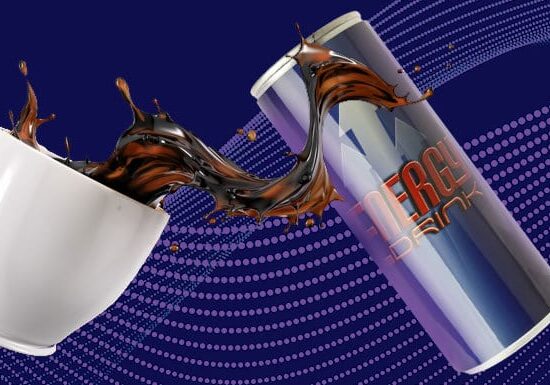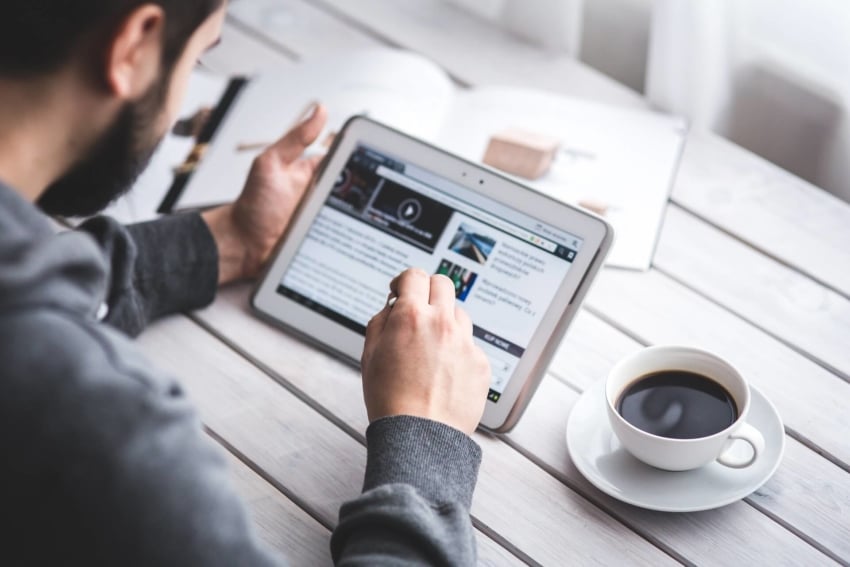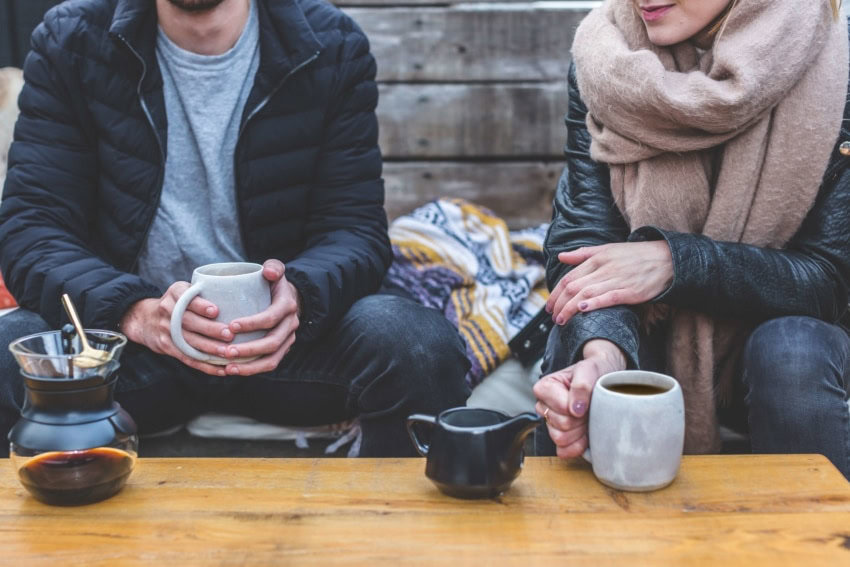Coffee vs Energy Drinks: The Battle to Keep You Awake
Updated: November 27, 2024

Between attending class, studying for tests, and keeping up a social life outside of college, you may find yourself in need of an occasional energy boost. This will mean making an important decision which has been the center of some serious debate: coffee vs energy drinks. If you’re looking for the refreshment that will provide you with the most energy as well as the best health benefits, then read on as we compare these two energy boosters.
Image by Karolina Grabowska from Pixabay
Coffee vs Energy Drinks: A Discrimination?
Compared to coffee, energy drinks are often viewed in a negative light. While energy drinks are banned from most school campuses, coffee is tolerated. In fact, a high school in North Carolina opened a student-run coffee shop. Are the unequal attitudes towards these beverages justified?
Energy drink fans will argue no, as an ounce of an energy drink has 10mg of caffeine while an ounce of coffee contains 18mg.
It is important to note, however, that caffeine is not the only issue to consider. A Monster energy drink is known to have 54 grams of sugar (almost 13.5 teaspoons), along with other ingredients such as amino acids and dyes.
Plus, the effects of coffee have been researched more than those of energy drinks. Also important to remember is that coffee is typically sipped, while energy drinks are consumed quicker, meaning the caffeine’s effects hit quicker.
Unfortunately, the media does often sensationalize the truth in order to get readers’ attention. While both coffee and energy drinks have their downsides, there are not as many people suffering those negative effects as the media would have us believe.
The Case for Coffee
Firstly, coffee is natural and has little to no additives or preservatives depending on the brand. Coffee also contains healthy nutrients such as vitamins B2 and B5, potassium, niacin, and magnesium. Coffee also contains no calories.
Coffee can be strengthened or weakened according to taste. This means you have more control over how you want your drink to taste and how strong you want your brew to be.
Also important to remember is that when you buy a packet of coffee, you can decide exactly how much of that packet you want to pour into each cup, as well as what other ingredients to include. If you want to limit your sugar intake, then you don’t have to include it in your coffee. With energy drinks, sugar and additives are already included, so you have no choice but to consume them.
What’s also great is that, because you decide how much coffee to use in each serving, you can save coffee by using less in each cup or pot. This approach will save you money in the long run.
The Case For Energy Drinks
Despite coffee being around for so much longer, energy drinks have become increasingly popular in recent years. Why is this?
Firstly, energy drinks provide a high dose of energy in a short time span. It is also easy to consume them anywhere and do so quickly. Coffee, on the other hand, is typically a more social drink that is sipped rather than guzzled down. Because it is hot, you have to wait for it to cool down a bit before drinking it and receiving more energy.
Because of delivering such a rapid and high dose of energy, it is important to remember that while energy drinks may seem like a more convenient way to earn a quick burst of energy, they can also cause you to suffer from a severe sugar crash. As soon as the effects of the energy drink wear off, you may start to feel more fatigued than ever.
Also important to consider is that energy drinks contain high amounts of sugar, preservatives, additives, flavorings, and even dyes. With so many concerns, energy drinks may be worse for you than coffee.
What Is Caffeine, And How Much Is In Each Beverage?
Let’s start by understanding what caffeine is. Caffeine is a stimulant that causes our brains to become more alert. This is what results in the energy boost that you get after you drink a cup of coffee or your favorite energy drink.
While it is very helpful in giving you both the energy and focus you need for studying, too much caffeine can disrupt your sleep patterns and cause confusion. It is recommended that a healthy adult does not consume more than 400 mg of caffeine a day.
How Much Caffeine Is In A Cup Of Coffee?
This very much depends on the size of the coffee. A grande cup of Starbucks coffee contains approximately 225 mg of caffeine. However, the grande cup is much larger than a regular cup of coffee. In reality, you would probably have to drink about four regular-sized cups of coffee to reach 400 mg of caffeine per day.
How Much Caffeine Is In An Energy Drink Can?
While this depends on the brand of energy drink, both Red Bull and Monster energy drinks have about 80 mg of caffeine per regular-sized can. This means that coffee will typically contain more caffeine, and will provide a higher caffeine boost. There are still some other factors to consider before determining which beverage is better for you.
How Much Sugar Is In Each Beverage?
Coffee:
While you may decide to put a teaspoon or two of sugar in your cup, the coffee itself is sugar-free. What’s great about this is that you can adjust the sweetness of your coffee according to your taste, as well as your sugar intake. If you happen to be someone who enjoys a strong black coffee, you may decide to not even take any sugar at all.
The fact that you can choose how much sugar is in your coffee has important health benefits, as the Heart and Stroke Foundation recommends not to consume more than 12 teaspoons of sugar a day.
Energy Drinks:
One can of Red Bull contains 26 grams of sugar, while a large can of Monster contains 54 grams. This works out to 14 teaspoons of sugar, which is over the healthy daily amount. While sugar does have its benefits, having too much sugar can result in a sugar crash, where you become fatigued after the effect of the sugar wears off.
What Other Ingredients Do These Drinks Have?
Photo by Burst from Pexels
Coffee:
Most types of coffee have little to no preservatives and additives. This is great news for you if you are looking to limit the number of unhealthy ingredients that you eat and drink. Organic coffees often have zero additives and preservatives, such as the ones that you can buy where you grind your own coffee beans.
Another great benefit to coffee is that it contains vitamin B2 and vitamin V5, as well as other important nutrients such as potassium, magnesium, and niacin. This means that drinking the right amount of coffee can have some health benefits.
Energy Drinks:
While energy drinks do have vitamins, they also contain many artificial ingredients. These include ingredients such as preservatives, flavorings, and even dyes, which are unhealthy for our bodies. For this reason, look towards drinking something more natural such as tea or coffee in order to get your vitamins.
Unlike coffee, energy drinks do contain taurine and ginseng, however, your body does not actually need these ingredients.
Calories
A calorie is a unit of energy, which you consume through foods and drinks. They are what give us the energy we need to get through the day. We burn off calories whenever we do physical exercise.
A typical cup of coffee has very little calories (the average cup has about 5 calories) — before you add milk and sugar, of course.
An energy drink such as Monster, on the other hand, has about 110 calories. While this may seem like a win for energy drinks, the opposite is true.
This is because it is important to get your calories from healthy food rather than unhealthy food. It is also important to ensure that you do not consume too many calories per day, as this can lead to health issues.
For this reason, it is better to drink coffee, and rather get your calories from other types of healthy food.
Side Effects
Coffee:
Because caffeine is a stimulant that gives you energy, it can disrupt your sleep patterns. For this reason, it is important not to drink coffee too soon before you go to bed.
Coffee can cause high blood pressure and a higher heart rate, jitters, and sleeplessness if you drink too much. It can also increase the risk of heart diseases and osteoporosis.
But before you panic, remember that these side effects can only happen if you drink an extreme amount of coffee.
Energy Drinks:
Energy drinks can cause the same side effects as coffee, as they also contain caffeine.
Another issue caused by energy drinks, particularly for college students, is that they are popular mixers for alcoholic drinks at parties. By having an energy drink with alcohol, you are dulling the effect of alcohol on the body, and tricking your body into allowing you to drink more alcohol than you can manage.
Mixing energy drinks with alcohol can cause dehydration and even lead to alcohol poisoning. If you decide to attend college parties, be sure to never mix energy drinks with alcohol.
Conclusion: Is There A Winner?
Considering that it has less sugar and contains natural vitamins, coffee certainly seems like a healthier choice. The only advantage that energy drinks have over coffee is that it can be more convenient to drink quickly on the go. Apart from that, coffee wins in every other category. This means that the winner is coffee!
This is not to say that you should never enjoy an energy drink, but rather that you’d probably want to avoid consuming an unhealthy amount. The same is true for coffee, as coffee can also have negative side effects when you drink too much.
Whichever beverage you choose to drink, make sure that you do so in moderation and enjoy a healthy balanced diet.



